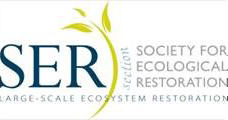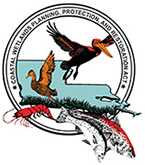Gulf of Mexico Plenary Session
Monday, August 27, 2018 | 9:00am – 5:00pm
Defining Restoration Success from the Local to National Level

NCER 2018 will feature a special Gulf of Mexico-themed plenary session on Monday August 27, 2018, consisting of all-day panel discussions with distinguished speakers capped off with an afternoon keynote by Susanne Torriente, Assistant City Manager and Chief Resiliency Officer for the City of Miami Beach, FL.
Each panel in the series will focus on a different aspect or component of restoration in order to address the following question from multiple angles: Gulf Ecosystem Restoration - What Does Success Look Like? Panelists represent a diverse cross-section of disciplines including scientists, decision-makers, restoration planners, and funders, from the Gulf Region and across the nation. This series is designed to provoke new ideas by engaging audience participants and facilitating dialogue among panel experts, furthering our understanding of restoration challenges, lessons-learned, and future opportunities.
In keeping with the broader conference theme, what successful ecosystem restoration looks like will be examined from the local to national level, with a focus on identifying, measuring, achieving and communicating restoration goals. These discussions will also explore how restoration in the Gulf is influenced by work done elsewhere and how lessons learned in the Gulf might apply to other regions.
Don’t miss this opening plenary. You're sure to take away new ideas from this informative session and benefit by applying similar approaches and lessons learned in your future restoration efforts.
Plenary Agenda
Restoration Planning for Success
The first step in the restoration process is planning. Under ideal circumstances, restoration projects are planned and designed to achieve specific goals. However, establishing those goals and setting targets that define restoration success typically present a challenge. Projects that could strive to accomplish long-term outcomes are often under pressure to yield short-term achievements according to fluid socio-political attitudes. How do we set restoration goals, and plan for restoration success on the basis of those goals? And how much planning is enough?
This panel will explore these questions and more through an in-depth and interactive conversation among panelists and the audience, diving into the diverse aspects of restoration planning, including setting priorities, the art of restoration planning, and finding the balance between planning and implementation.
Organizers
Debbie DeVore, Gulf Restoration Manager, Department of the Interior, Fairhope, AL
Brad L. Inman, Chief, Projects and Restoration Branch, New Orleans District, U.S. Army Corps of Engineers (USACE), New Orleans, LA
Moderator
Bren Haase, Chief, Engineering and Research Division, Louisiana Coastal Protection and Restoration Authority (CPRA), Baton Rouge, LA
Panelists
Mark R. Wingate, Deputy District Engineer for Programs and Project Management Executive Office, New Orleans District, U.S. Army Corps of Engineers (USACE), New Orleans, LA
David Kidwell, Program Manager, NOAA National Centers for Coastal Ocean Science (NCCOS), Silver Spring, MD
Don Boesch, Professor of Marine Science, University of Maryland Center for Environmental Science, Annapolis, MD
Holly A. Bamford, Chief Conservation Officer, National Fish and Wildlife Foundation (NFWF), Washington, DC
How Do You Assess Cumulative Effects of Regional Restoration Efforts and Evaluate Success?
Once we have decided on regional restoration priorities, how should we measure and reconcile results to determine whether we are successfully addressing those priorities? Can we effectively establish baselines and indicators upon which to evaluate restoration success and can this be done in a manner that allows for a cumulative assessment of the effects of restoration investments throughout the Gulf? Should cumulative effects assessment be used as a general approach to inform programmatic adaptive management? What are the benefits and barriers to this approach?
Bringing together diverse experiences from across the U.S. and perspectives from different levels of government, this panel will address these questions and more through a guided discussion between researchers, resource managers, and the audience.
Moderator & Organizer
Gregory D. Steyer, Science Advisor, Gulf of Mexico, USGS Southeast Region, Baton Rouge, LA
Panelists
Heida Diefenderfer, Team Leader, Ecosystems Research, Pacific Northwest National Lab (DOE) Coastal Sciences Division, Sequim, WA
Matt Harwell, Special Assistant, Ecologist, Everglades System Assessment Section, EPA, Gulf Ecology Division, Gulf Breeze, FL
Neil Ganju, Research Oceanographer, Woods Hole Coastal and Marine Science Center (USGS), Woods Hole, MA
John Callaway, Lead Scientist, Delta Science Program, Delta Stewardship Council, Sacramento, CA
Integrating Restoration Science and Decision-Making
In order to truly integrate restoration science into sound decision-making, the needs and expectations of decision-makers must be understood by scientists. Conversely, the constraints and uncertainties associated with restoration science and project implementation must be understood by decision-makers. Restoration science and analysis can then be developed to answer questions that address those needs to the extent practicable. Dialog between scientists and decision-makers can help ensure expectations are reasonable and that goals are met.
This panel will consist of experienced decision-makers and scientists who will discuss how we can better link these arenas. Through guided dialogue among themselves and the audience, panelists will share success stories for integrating restoration science with policy, as well as challenges and barriers in the Gulf and how these might be addressed.
Organizers
Bethany Carl Kraft, Senior Program Manager, Gulf Region, Volkert, Inc., Mobile, AL
Denise Reed, Professor Gratis, University of New Orleans, New Orleans, LA
Moderator
Fred H. Sklar, Director and Section Administrator, Everglades Systems Assessment (ESA) Section, South Florida Water Management District, West Palm Beach, FL
Panelists
Holly Greening, Executive Director, Tampa Bay Estuary Program (TBEP), Parrish, FL
Toby Baker, Commissioner, Texas Commission on Environmental Quality (TCEQ), Austin, TX
Denise Reed, Professor Gratis, University of New Orleans, New Orleans, LA
The Future of Restoration
Assuming that every dollar resulting from oil spill fines and claims is invested wisely, and that projects are generally successful, we will have barely scratched the surface of restoration needs in the Gulf region. The Gulf region faces enormous ecosystem challenges, extreme vulnerability to the impacts of relative sea level rise and other uncertainties such as climate change, and declining state and federal spending levels for restoration and the science that supports it. Given these challenges, how should we be thinking about positioning ourselves for the future 20-50 years from now while we make investments today?
This panel will bring together restoration funding experts from across governmental and non-governmental organizations, as well as scientific expertise in predicting future scenarios, for a guided conversation exploring two topics that could influence the long-term success and sustainability of restoration activities: funding availability and scientific uncertainties including climate change. Panelists will engage in an audience question-and-answer session to stimulate dialog considering strategic investment, creative financing, and incorporating the best science to ensure sustainable long-term restoration investments.
Organizers
Bethany Carl Kraft, Senior Program Manager, Gulf Region, Volkert, Inc., Mobile, AL
Alyssa Dausman, Vice President for Science, The Water Institute of the Gulf, Baton Rouge, LA
Justin Ehrenwerth, President and CEO, The Water Institute of the Gulf, Baton Rouge, LA
Moderator
Bethany Carl Kraft, Senior Program Manager, Gulf Region, Volkert, Inc., Mobile, AL
Panelists
Tanner A. Johnson, Director, Gulf Environmental Benefit Fund, National Fish and Wildlife Foundation (NFWF), Baton Rouge, LA
Barry Gold, Environment Program Director, Walton Family Foundation, Washington, DC
Ehab Meselhe, Professor at Tulane University and Vice President for Engineering, The Water Institute of the Gulf, Baton Rouge, LA
Mike Chotkowski, San Francisco Bay-Delta Science Coordinator, U.S. Geological Survey (USGS), Sacramento, CA
Keynote Speaker: Susanne M. Torriente
Assistant City Manager and Chief Resiliency Officer, City of Miami Beach
Susanne will present the closing keynote address at the end of the Gulf of Mexico-themed plenary session - Gulf Ecosystem Restoration: What Does Success Look Like? As the Chief Resiliency Officer in a city tackling the challenges of sea level rise head on, Susanne Torriente will talk about the scale and complexity of scaling resilience planning and action at a city, county and regional level; as well as fully integrating resilience thinking into an organization’s corporate culture and strategic budget process.
Gulf of Mexico Plenary Organizers
Brie Bernik, Gulf Research Program Science-Policy Fellow, Gulf Coast Ecosystem Restoration Council, New Orleans, LA
Alyssa Dausman, Vice President for Science, The Water Institute of the Gulf, Baton Rouge, LA
Debbie DeVore, Gulf Restoration Manager, Department of the Interior, Fairhope, AL
Justin Ehrenwerth, President and CEO, The Water Institute of the Gulf, Baton Rouge, LA
Jessica Henkel, Science Advisor and Coordinator, Gulf Coast Ecosystem Restoration Council, New Orleans, LA
Brad Inman, Chief, Projects and Restoration Branch, New Orleans District, U.S. Army Corps of Engineers (USACE), New Orleans, LA
Bethany Carl Kraft, Senior Program Manager, Gulf Region, Volkert, Inc., Mobile, AL
Denise Reed, Professor Gratis, University of New Orleans, New Orleans, LA
Gregory D. Steyer, Science Advisor, Gulf of Mexico, USGS Southeast Region, Baton Rouge, LA
Hosting Organizations
Platinum Sponsor
Partnering Organizations
Tweets by @NCERConference









